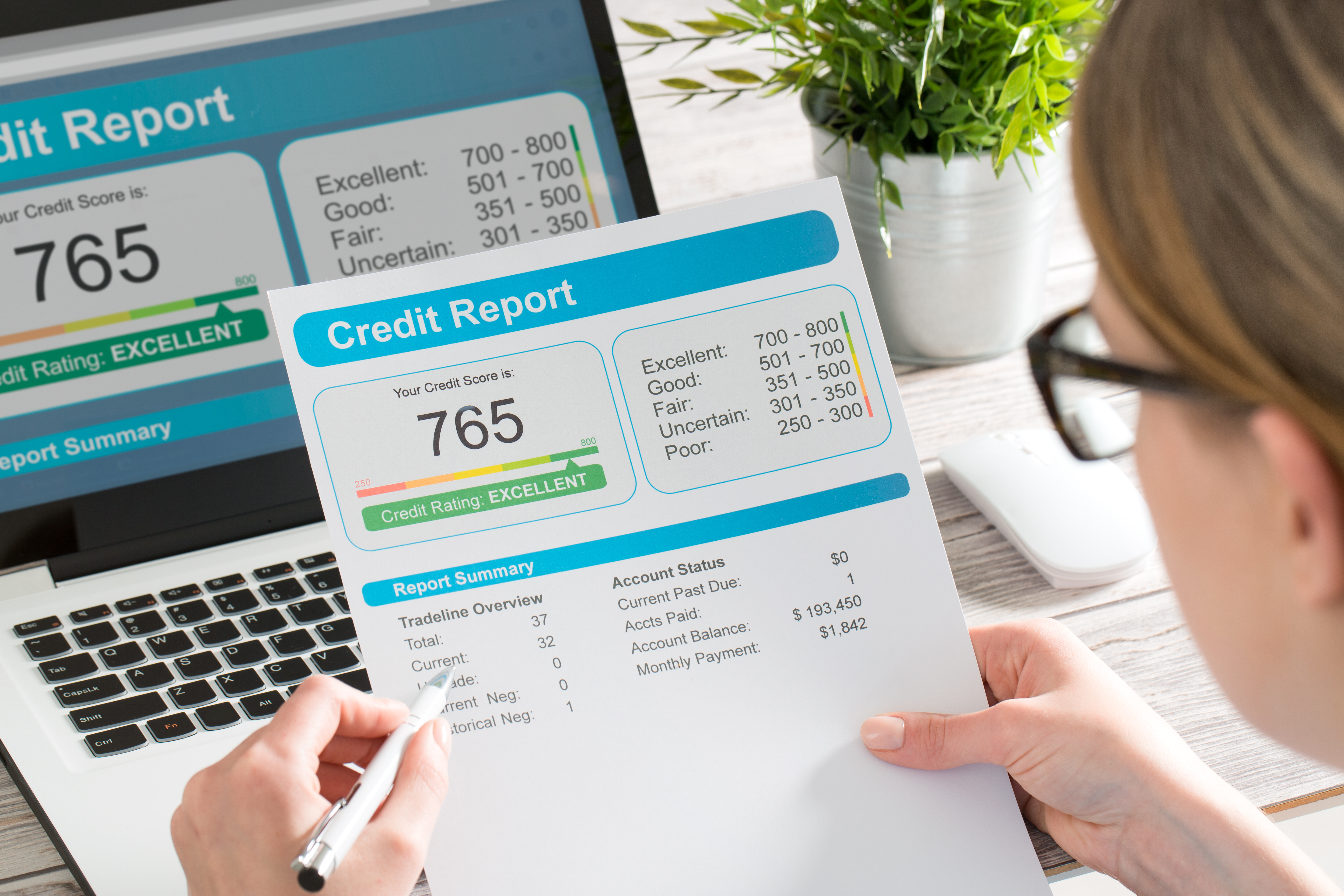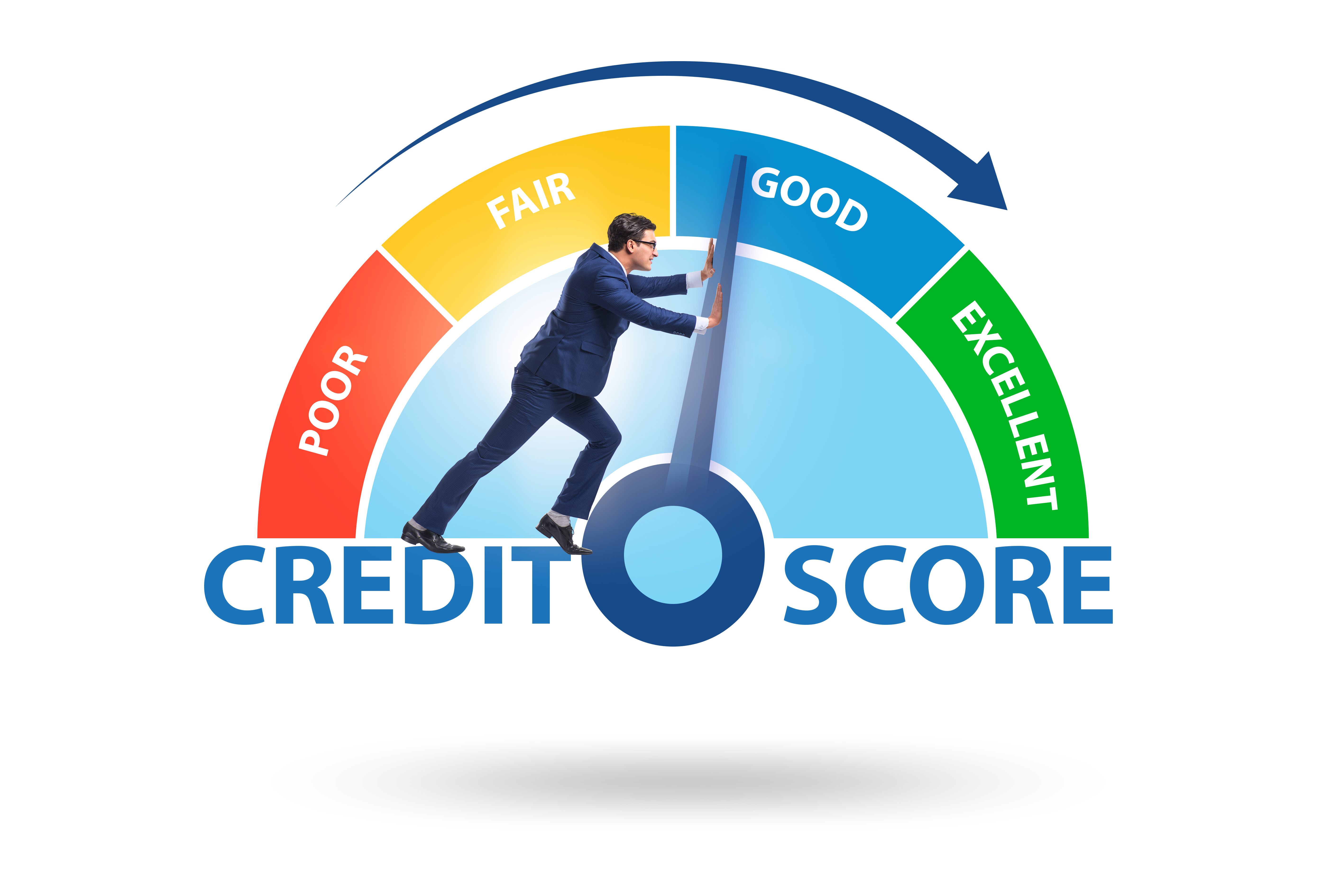What is a business credit score?
A business credit score functions much like a personal credit score. It’s a numerical representation of your business’s creditworthiness, much like how a FICO score rates your personal finances. Just as your personal credit score determines your ability to obtain loans or credit, your business credit score helps lenders and vendors assess your company's ability to pay back debts and manage financial responsibilities. For small businesses, there’s even a specific FICO score, called the FICO SBSS, that serves this very purpose.
One key difference between personal and business credit scores is accessibility. While your personal credit score can only be checked by companies with a “permissible purpose” as defined by federal law, anyone can check a business’s credit score. This includes competitors, potential business partners, or even your father-in-law if he’s curious about your financial standing. This transparency can be a double-edged sword; while it provides opportunities for businesses to prove their creditworthiness, it also means that any financial missteps or vulnerabilities may be exposed to others in the industry.
In today's competitive market, it’s increasingly important for business owners to stay on top of their credit scores to maintain a good reputation and foster trust with suppliers, lenders, and even customers. Additionally, some B2B marketplaces and vendors may require a certain credit score to qualify for favorable terms or partnerships, making it essential for businesses to actively monitor and manage their scores.
What’s the difference between a business credit report and a business credit score?
In general, your business credit report and business credit score are very similar to your personal credit report and personal credit score.
Every business has a business credit report—even if you’ve never seen it! This report shows business information, all your business’s debts including your business line of credit, business credit card, credit history, any business loans, liens on your business, and any bills that are past due that have been reported to the credit bureau.
If you want to apply for an sba loan or any credit product for your business, the lender or credit provider is going to look up your business credit report to determine your creditworthiness and credit profile. So, the entire report is the business credit report. A part of every report is the business credit score. This is a number (usually scores range between 0-100), with a higher number reflecting a better credit score (which makes your business more attractive to lenders).
Both your business credit report and your business credit score impact your business’s finances. It’s very similar to your personal credit report and score, which determine whether you can get a credit card, loan, mortgage, etc. It will also determine what interest rate you’ll pay when you borrow.
Does my business credit score matter if I'm a small business owner?
Absolutely. Even if you have a small business or a startup, building up a good credit score is essential for your business. It’s used by financing companies, lenders, and insurance companies. Your business credit score may be the deciding factor on whether you’re able to secure a lease, get insurance coverage, and access financing. The higher your score, the better financing terms and rates you can negotiate.
Besides giving you access to financing and better rates, your business credit report and credit score are used by B2B companies when they’re setting your net terms.
When you want to purchase goods or services and wait to pay, you request that the selling company provide you with net terms. This means you are given a certain amount of time to pay for the purchase without penalty. Most net terms are 30 or 60 days. But the seller doesn’t give everyone the same terms. They check your creditworthiness and business credit risk and use that as a key piece of business information about which net terms to offer—and the dollar limit.
The ability to wait to pay for purchases will improve your cash flow, benefit your balance sheet, and help you manage your accounts payable.
One company that helps businesses offer net terms is Resolve. But they’re different, because they offer something called net-terms-as-a-service. In this case, they still conduct a credit check, but in a ‘soft check’ manner that isn’t disruptive or invasive. When processing a credit check on behalf of a supplier/business, Resolve only requires the customer’s business name and address. From this, they provide a full credit report that’s been evaluated by their credit experts. (Other companies offer a service called invoice factoring. They perform more aggressive credit checks to determine creditworthiness.)
With this information, a business knows which net terms to offer to their client as well as the credit limit. For businesses that need to offer net terms in order to secure contracts, the process is efficient, straightforward, and reliable. And, it eliminates the need to use the old school methods of establishing net terms (‘gut’ instinct, or costly manual reference checks).
If a company you purchase from is using Resolve, you won’t notice anything different, except that when it’s time to pay they have a very user-friendly platform where you can easily pay your invoice with a credit card, bank/wire transfer, or even by mailing in a check.
In the same way that your personal credit report can be used to apply for a residential mortgage, or your personal credit score determines what interest rate you’ll be charged for a loan, your business credit report and business credit score will impact your business financial opportunities.
So, even if you don’t expect to need financing in the near future, having a strong business credit score and a favorable business credit report will help you run your business.
How do I get my company’s business credit report? Is Dun & Bradstreet my only option?
Although there are some options for getting a free credit report, it’s a good idea to pay for one. The paid options are more accurate and usually have more information for you.
There are three main companies that issue business credit reports: Dun & Bradstreet, Equifax, and Experian. Each uses slightly different credit information to determine your credit report and score. The report is connected to your company’s EIN (employer identification number).
Even if you have no plans to apply for financing in the near future, you should be checking your business credit score at least once a year—every six months is better. (You can also sign up for a subscription service that will check your report on a regular basis.) Way back in 2013, the Wall Street Journal published an article about credit reports for small businesses. They found that 25% of small businesses that had checked their business credit report within the past 2 years had found errors or were missing important financial information. Those errors meant lower credit scores and less access to desirable financial products and rates!
Learn more about building a solid small business accounting foundation here
Remember earlier where we talked about how companies use creditworthiness to decide which net terms to extend to their customers? In the WSJ article, 7% had been refused net terms at least once in the past year. Making sure your business credit report is accurate and up to date is important to every business.
Before you apply for a business credit report, it’s a good idea to register for a UNS number. This is a unique 9-digit number that’s used to identify your business—similar to an SSN for individuals. You’ll use this number when you request a business credit report. D-U-N-S Numbers are used by lenders and other businesses.
To get a copy of your business credit report, we recommend using one of the main credit agencies. Dun & Bradstreet is the most expensive, but they’ll provide you with your credit summary, credit risk score, Paydex score (which shows how your business does with paying suppliers and other businesses), financial stress score (a prediction of how likely your business is to seek creditor relief in the next 12 months), and industry payment benchmarks.
You can also purchase an Experian business credit report. They offer an instant online report that includes your business’s credit, background information, Intelliscore Plus SM (Experian’s exclusive scoring model), Financial Stability Risk rating, business credit score, and access to identity protection alerts.
The third of the top agencies selling business credit checks is Equifax. Their information includes your business data, company's credit summary, risk scores, and public records.
Companies offering free business credit reports include CreditSignal, Nav, Credit.net, CreditSafe.com, and Scorely.
All these companies use slightly different methods to determine your creditworthiness, so the scores will vary a little. This is OK. What you need to check no matter where you get your credit report from is that all the information is accurate and up to date. If you’re one of the 25% of small businesses that has errors in your credit file, get them corrected ASAP. Every reporting company includes information on how to correct an error if you find one. Follow all the steps, and then check back to make sure the error is off your report. Even seemingly minor things, like your address or the length of time you’ve been in business are important.
Tips for improving your business credit score
There are many things you can do to improve your business credit score—and they also improve your business's financial health. Whether you’re just starting out, or you’ve been in business for decades, do these things to improve your credit score.
-
Don’t mix business and personal. Use a business bank account and business credit card for business transactions and nothing else.
-
Ask your suppliers to report you. This isn’t as sinister as it sounds! Whenever you’re working with a seller that gives you net terms, ask them to report your payment history to any business credit bureau. (Of course, this means you’re careful to make all your payments on time.)
-
Get organized with an accounts payable system. Make sure you pay all your bills on time, every time.
-
Consider using a business credit monitoring service. All three of the main credit reporting agencies offer this service. It’s subscription-based and you’ll get a regular report about your business’s credit. Note: Make sure you read these carefully when they come in and report any errors promptly.
-
Slow and steady wins the race. Be patient. It takes time to establish your business, and it takes time to establish good credit. Every little step in the right direction matters.
-
Make it a little personal. As a business owner, your personal credit rating can impact your business credit—especially when you’re just starting out and have minimal payment history. Keep your personal/consumer credit in order just like you keep your business credit in order.
What factors impact my business credit score?
As we mentioned earlier, every credit agency scores credit a little differently. And we don’t have access to their exact formulas. What we do know is that they all look at these things: your payment history (this includes every bill under your business name), how long you’ve been in business, how much debt you have, how you’re using your available credit, the risk level of the industry you’re in, and the size of your business.
Some things are out of your control—you can’t exactly go back in time and start your business a few years earlier! And you can’t control the industry risk rating. But things like your payment history, debt, and debt usage are in your control. The better you manage these, the better your credit score and business credit report will be.







